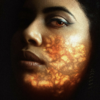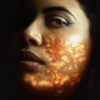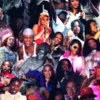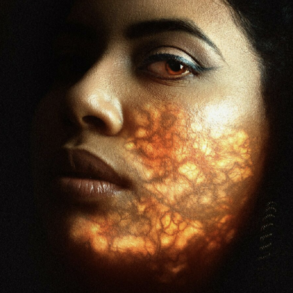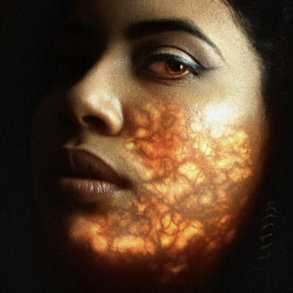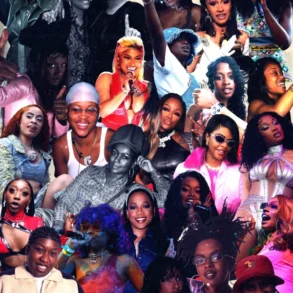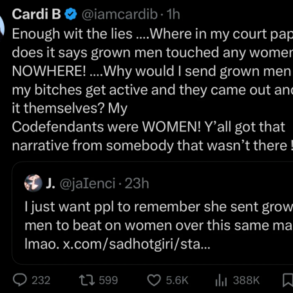Credit – Photo-Illustration by TIME; Getty Images
Cassie Ventura is not the first survivor of hip-hop’s abuse. Unfortunately, she will not be the last. In the months since Ventura filed a federal lawsuit against Sean ‘Diddy’ Combs for rape and abuse in November 2023, six women survivors and one male survivor have come out against the hip-hop mogul with stories of alleged abuse and harm. Ventura’s brutal account, coupled with surveillance video released on May 17 by CNN of the singer being physically assaulted by Combs in 2016, has also reignited discussions about why hip-hop needs its own #MeToo movement. (Combs apologized for his actions on the video, but denied all other allegations. On June 22, People reported that Combs deleted all of his social media posts on Instagram, including his apology video to Ventura.)
Since Ventura’s initial filing against Combs, other people have come forward about the sexual and physical assault at the hands of other men in hip-hop. Musician and record producer The-Dream, for instance, was accused of sexual and physical assault by Chanaaz Mangroe, his former protege. (In a statement to The New York Times, The-Dream said “These claims are untrue and defamatory.”) But the pushback Ventura received by hip-hop’s elder statesman—like Akon, Uncle Luke, Slim Thug, and Stevie J, to name a few who chose to stand by Combs and discredit her claims— proved why, while Hollywood and other industries have broken some ground since the Harvey Weinstein allegations in 2017, a reckoning of gender violence has yet to transpire in the genre.
It seems a culture of fear is governing hip-hop. And it’s about time we recognize it.
After the release of the footage, Slim Thug and Uncle Luke rescinded their support for Combs. But the majority of prominent men in hip-hop have remained silent about the truth—that their cowardly refusal to hold their peers accountable has resulted in the continued degradation of Black women’s safety and their lives. That their silence has become complicity.
“Why is it so hard to believe Black women?,” ask Patrice Tillery and Christina M. Jones, Esq. in an article for BWJP, The Battered Women’s Justice Project. “Even in situations where sharing our truth benefits us in no visible way, and in many cases, makes something that is already incredibly challenging, exponentially harder. Why do we have to beg for the bare minimum?”
Misogynoir is, of course, not unique to hip-hop. These universal systems of oppression are prevalent in the lives of Black women. But what is unique about the hip-hop industry is that its leaders feel the need to defend the genre that made them—to protect it and gate-keep it, even at the cost of sweeping violence under the rug. This, as a result, has interwoven gender-based oppression into its DNA.
From its inception half a century ago, hip-hop has had to protect itself from law enforcement, the media, and political leaders. Oftentimes, those seen as its protectors were men. Hip-hop gave Black men access to wealth and resources that they had never seen. In turn, the Black women, who also helped to create the music and safeguard the culture, were subjected to dehumanization and humiliation from their male peers. That dangerous bargain has not only remained the same, but proved itself to be profitable for the men in charge.
Some of the genre’s earliest titans—like Russell Simmons, Dr. Dre, and L.A. Reid— were able to accumulate economic and social capital throughout the years, while reportedly assaulting the women who worked around them. On Feb. 13, for instance, a former Def Jam senior executive alleged that Simmons sexually assaulted her in the 1990s, after she went to his residence for approval on a music video. Model Keri Claussen Khalighi, writer Jenny Lumet, hip-hop pioneer Sherri Hines, music journalist Toni Sallie, actress Alexia Norton Jones, fashion publicist Kelly Cutrone, and former Def Jam Recordings executive Drew Dixon have also accused Simmons of sexual assault and harassment. (In an episode of In Depth With Graham Bensinger, Simmons said, “I’ve never been violent to anybody.” He continued, “Of course, I’ve been insensitive, but certainly never been forceful in any of my relationships, all of which I’ve had have been consensual.”) In November 2023, Dixon also accused Reid of sexual assault. (Reid denied her claims.) A few years before, in 2017, she accused the music executive of misconduct.
In 1991, Dr. Dre allegedly physically assaulted hip-hop journalist Dee Barnes at an industry party. Barnes sued Dre that same year and the lawsuit was settled out of court. In 2015, singer Michel’le Toussaint, Dr. Dre’s ex-fiancee, also alleged that Dre physically abused her during their relationship. Nicole Young, Dr. Dre’s ex-wife, alleged in 2021 that Dre was abusive to her throughout their marriage. (Dr. Dre denied Young’s claims of abuse. He also denies Michel’le’s claims. He spoke about Barnes’ alleged assault in The Defiant Ones, “Any man who puts his hands on a female is a f—ing idiot. He’s out of his f—ing mind, and I was out of my f—ing mind at the time. I f—ed up, I paid for it, I’m sorry for it, and I apologize for it.”) In spite of the accusations, Dr. Dre continues to be feted and held up in music and entertainment—from headlining the Super Bowl LVI halftime show in 2022, to receiving a star on the Hollywood Walk of Fame in March 2024, to performing alongside Kendrick Lamar at The Pop Out: Ken & Friends show this Juneteenth.
Read more: Dee Barnes: Women Are ‘Casualties’ of Straight Outta Compton‘s ‘Revisionist History’
Journalists, A&R executives, models; all of these women were seen as expendable. In the case of Barnes, her abuse was turned into profit by Dre and his associates. In the years that followed the alleged assault, Eminem and Dr. Dre turned her name into a punchline in their music. On “Guilty Conscience,” a single from the 1999 The Slim Shady LP, the hip-hop duo said, “You gonna take advice from somebody who slapped Dee Barnes?/ What you say?/ What’s wrong? Didn’t think I’d remember?/ I’ma kill you, motherf-cker.” Then, in 2007, fellow rapper Redman made another reference to Barnes on “Get ‘Em,” a track from Red Gone Wild: Thee Album. “You get slapped like Dee Barnes, Doctor, not Dre, And eating – but, I’m after the entrée!,” said the rapper.
This cycle of abuse laid the groundwork for what was to come when Tory Lanez assaulted and shot Megan Thee Stallion in 2020. Shortly after news of her assault was made public, Megan Thee Stallion was ostracized. Internet bloggers, podcasters, and content creators promoted and distributed false narratives regarding the assault, accusing her of lying. To boot, hip-hop superstar Drake’s lyrics about the Houston rapper on “Circo Loco”— “This bitch lie ’bout gettin’ shots, but she still a stallion”—contributed to the narrative. The shooting was referenced again by Eminem on “Houdini”:“If I was to ask for Megan Thee Stallion if she would collab with me, Would I really have a shot at a feat? (Ha!), I don’t know, but I’m glad to be back, like”
Hip-hop and the people who support the industry have long used the harm and violence enacted on Black women as a way to promote their newest song for attention-grabbing headlines. But in the social and digital media age, that same harm and violence has turned into content. Only now, Black women aren’t the only ones subjugated to this type of harassment and mistreatment.
When producer Rodney ‘Lil Rod’ Jones filed a lawsuit against Combs for sexual harassment and sexual assault in February 2024, the response on social media was an influx of homophobic content, with the “No Homo” slur replaced by “No Diddy.” Some people used Jones’ lawsuit—and the vitriolic response it inspired—to downplay the other lawsuits filed by women.
Because misogynoir is rooted in the devaluation of femininity at large, LGBTQIA+ people are also susceptible to gender-based violence. And in a genre where Black toxic masculinity is a key to success, hip-hop does not create space for the Black queer experience to be celebrated. Despite the accomplishments of openly queer rappers such as Young M.A, Lil Nas X, and Saucy Santana, their success is often viewed as an anomaly, instead of the norm.
Oftentimes, in fact, men in hip-hop enforce strict boundaries around race, gender, and femininity through their music. From the homophobic first verse on “Dior” by Pop Smoke to the reported mistreatment of artist ILoveMakonnen by Drake’s record label OVO Sound because of his sexuality, homophobia and masculinity are strictly enforced by hip-hop’s gatekeepers.
Despite the efforts of many top artists, from Ice Cube to Killer Mike, to critique white supremacy, capitalism, and mass incarceration, there is a conspicuous silence when it comes to sexuality and gender. Even when artists like Kendrick Lamar feel as if they are protecting hip-hop from “colonizers” (in a recent case, Drake), Black women become the inevitable casualties. During their weeks-long rap beef, both Lamar and Drake hurled allegations of gender-based violence against one another. From intimate partner violence to inappropriate conduct with minors, every woman and child that was affiliated with the pair became subjugated to intense scrutiny and surveillance online. Although it was the men who were being accused of physical and sexual abuse, that did not stop the public from turning their scrutiny to the women they allegedly abused.
Read more: A Recent Timeline of the Drake vs. Kendrick Lamar Beef
It’s interesting that a through-line in their exchange of diss records was the bold proclamation of who inflicted more harm toward women and which harm was greater—like points on a scoreboard. This laissez faire approach to violence against Black women and girls in hip-hop is the reason why some people still believe Lanez. Why people still don’t believe Ventura.
A common refrain when survivors like Ventura come forward is that the woman in question is doing this for financial gain. That the easiest way to make money as a woman in hip-hop (outside of producing a child) is to accuse a man of sexual assault. But this couldn’t be farther from the truth. In a recent Rolling Stone article, the majority of Combs’ survivors said they were pursuing legal action against him not for financial exploitation, but for themselves—to find some semblance of peace and warn other women and girls currently in Combs’ life.
Journalist August Brown, who has reported on Combs for the Los Angeles Times, spoke about the financial and legal implications that prevent survivors from coming forward on a March 2024 episode of the podcast What A Day: “One thing that he [Combs] was very effective at, that we learned in our reporting, is using NDAs to kind of lock people into his ecosystem and feel like they can’t speak up,” he said. “Someone with that much money and that much power within the industry, it takes a lot of gumption to go up against him and either break an NDA or find a way to speak out in spite of one. Up until the Cassie suits, I think a lot of people still to this day probably remain afraid of him in some capacity.”
Troubling, too, is the release of Ventura’s video via CNN, which poses other questions about the cyclical nature of gender-based violence. Did Combs not receive an influx of followers after his apology video was published on Instagram following the release of the video? Did he not receive engagement from every click, like, and subscribe off of this video–off of a survivor’s pain? Was the video not re-traumatizing for Ventura and other survivors of Combs’ violence? That is misogynoir in practice, adapted for the digital age.
So, what drives survivors to come forward? Why would Ventura, Jones, Liza Gardner, Joie Dickerson-Neal, and a woman who identified as Jane Doe break their silence at a point when Combs remains so powerful not just in hip-hop, but pop culture at large?
It is the humanistic belief that there is a better way forward. After the release of the surveillance video by CNN in May, Ventura said the following in a statement on Instagram: “My only ask is that EVERYONE open your heart to believing victims the first time…It takes a lot of heart to tell the truth out of a situation that you were powerless in.”
It is possible for a reality to exist where Combs and men like him are not in power to inflict harm and violence. There is no golden rule that states that hip-hop, and men in hip-hop, must operate like this and continue the proliferation of violent attitudes and behaviors. But it must be done in unison. Change cannot be enacted or sustained by a singular artist, fan, or critic. Change requires multiple artists, fans, and critics to bring forth equitable policies and practices in hip-hop to create a healthier environment for everyone.
With intention, hip-hop can dismantle racial and gender oppression. But in order to make this a reality, we must abolish the very systems that encourage men like Combs to perpetuate them in the first place. If hip-hop is meant to survive another 50 years, it cannot continue like this. This is the watershed moment we’ve been waiting for.
Contact us at letters@time.com.
This post was originally published on this site be sure to check out more of their content.

